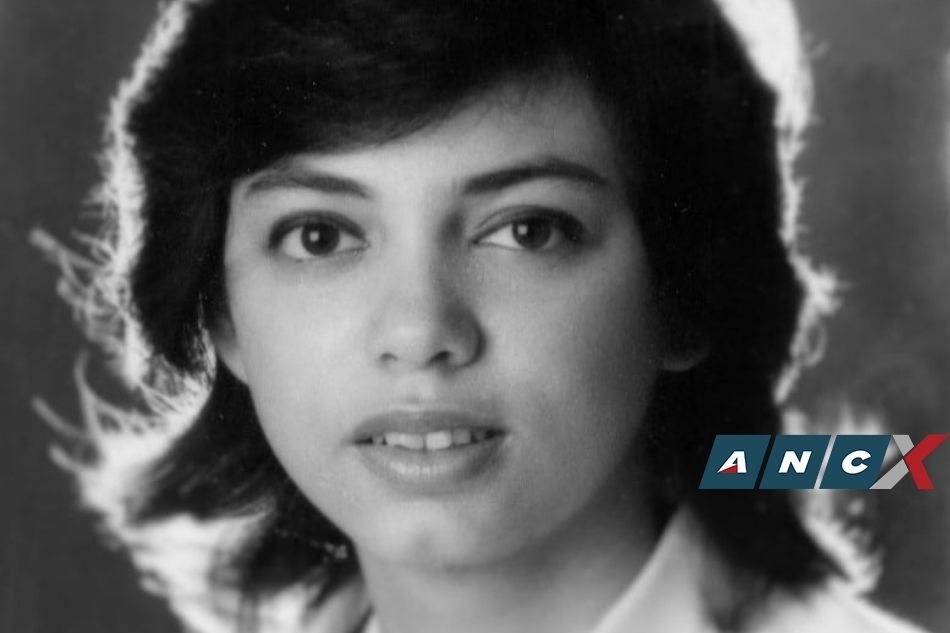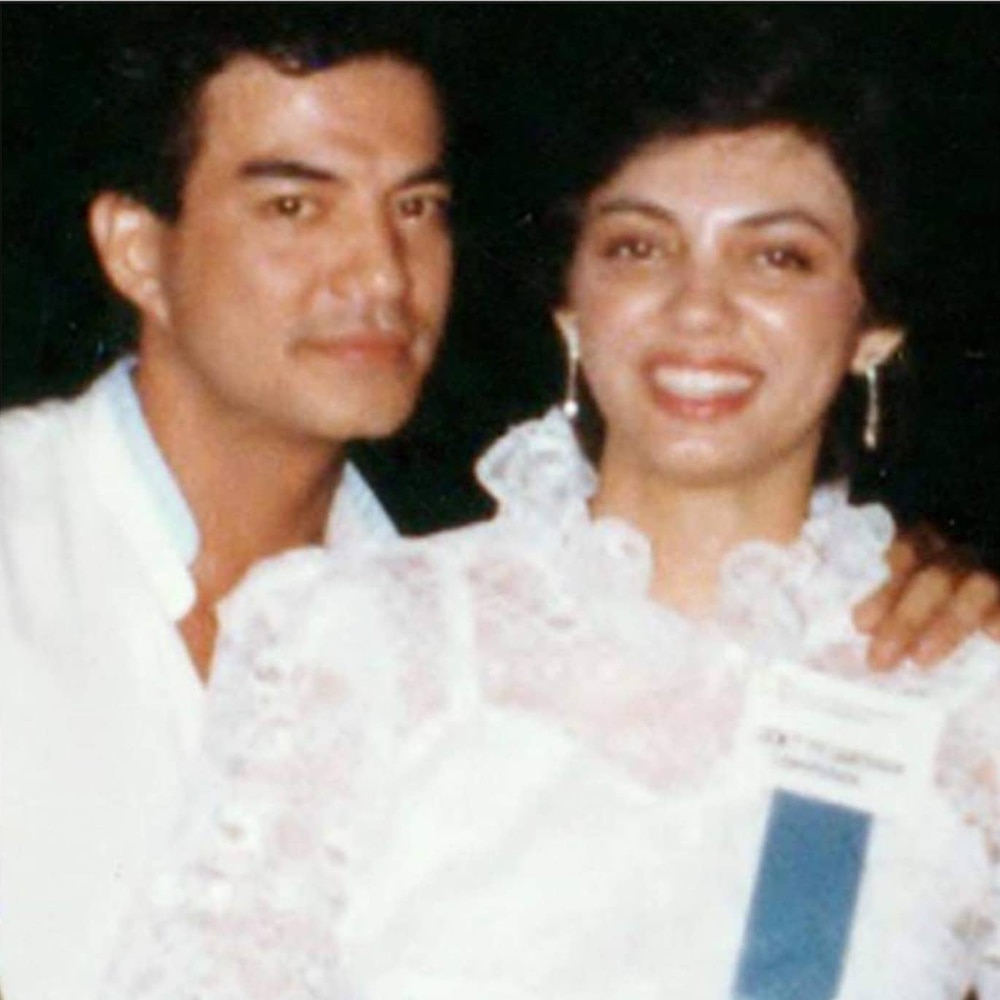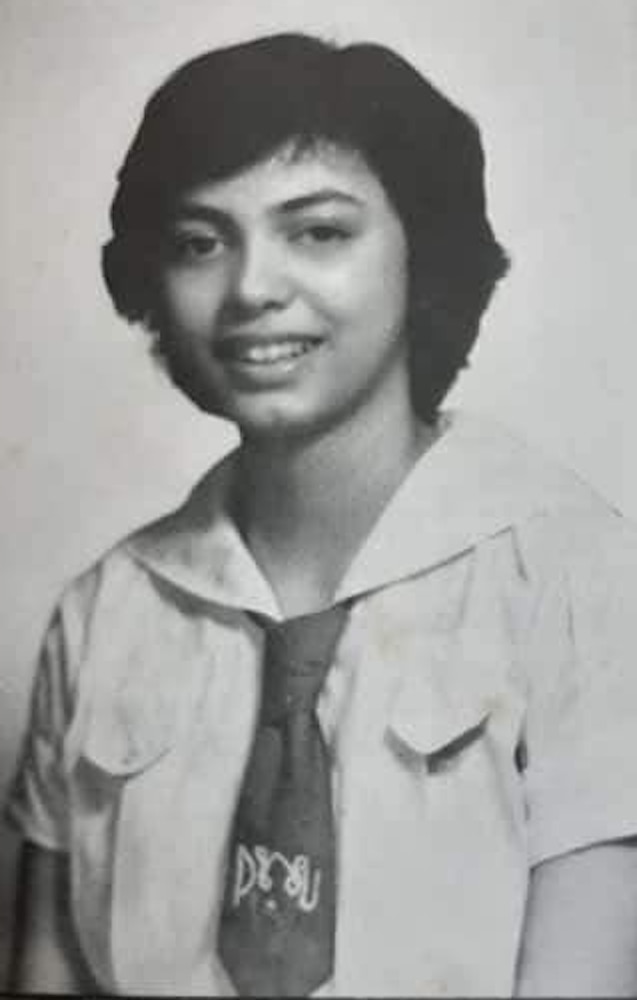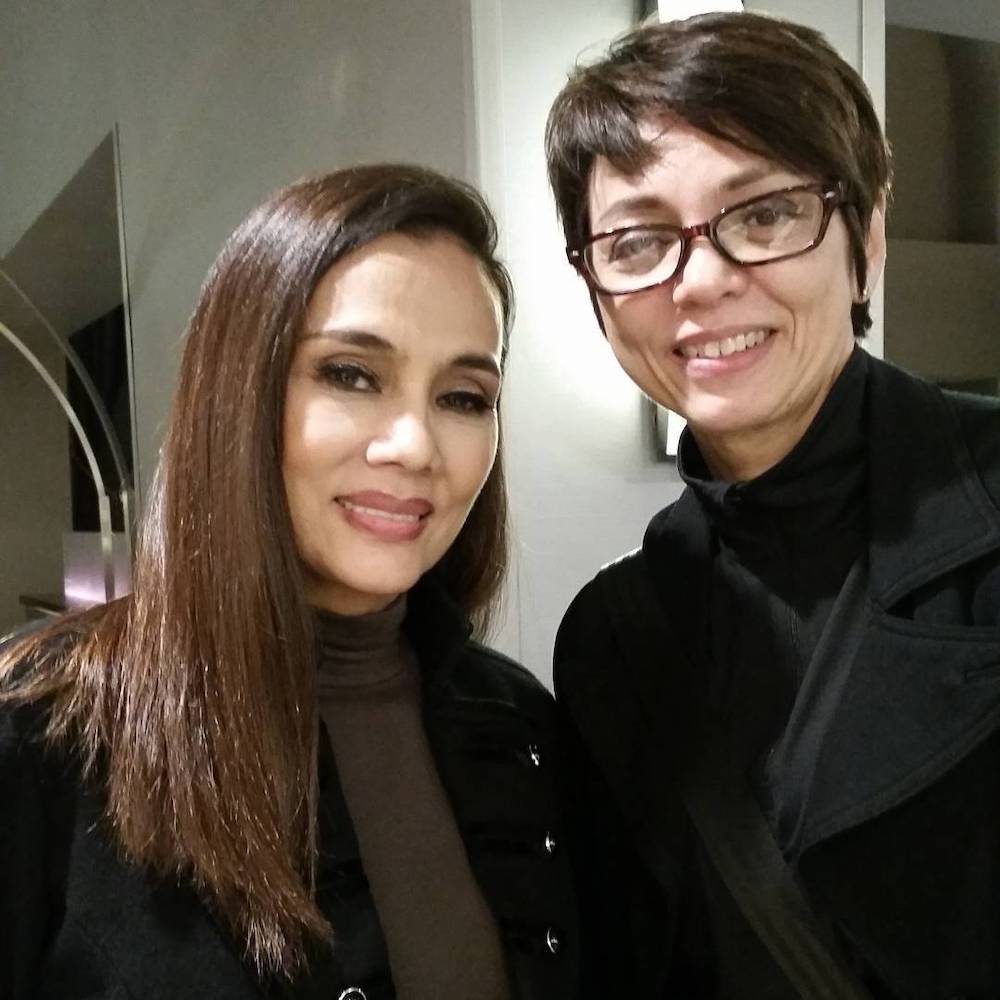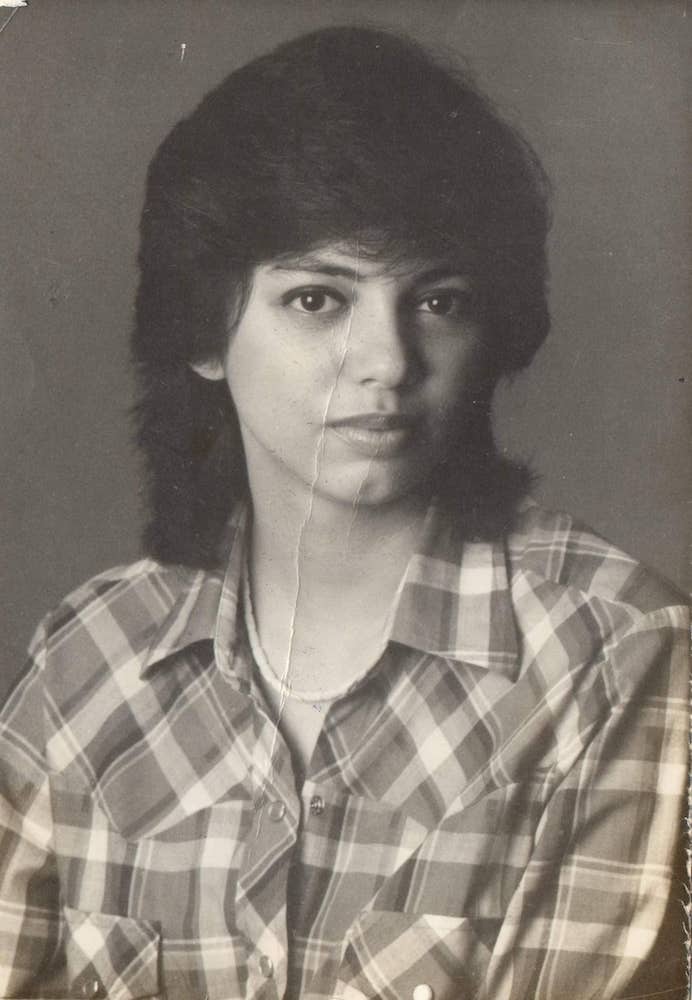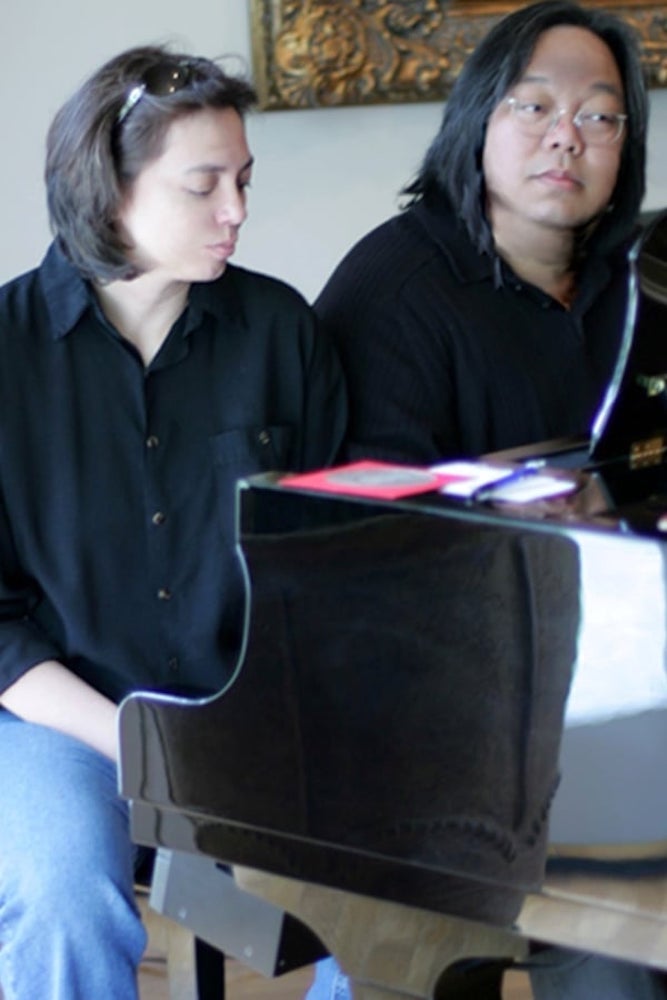“Till I Met You.” “Friend of Mine.” “To Love Again.” “Farewell.” Whatever phase you may be going through in your personal affairs, there’s an Odette Quesada song (or two, or three) that would likely strike a chord. Pining for a beloved's attention? There’s “Give Me a Chance.” Regretting having to let go of a significant other? There’s “I Need You Back.” Unrequited love? There’s “Don’t Know What To Say (Don’t Know Want to Do).”
The singer-songwriter, one of the most beloved hit makers of the 1980s, recently posted about this last song on her Facebook page. Originally sang by Ric Segreto, Odette wrote it on her 17th birthday, and it just turned 40 years old. Hence the commemorative social media post.
Hence the inspiration to get in touch with her and find out more about the song and its back story, and the back stories of all the other favorites we remember by heart. Love songs of a certain time that have become classics.
People grow old but Odette's songs are forever young. They’ve been re-recorded, revived, played and sung in videoke sessions by Filipinos of all ages over the last four decades. It's always been the power of simplicity that has made her compositions resonate through time and with so many, and the raw emotion and unquestionable sincerity they convey. There was always something easy about them, but also undeniably heartbreaking.
She knew what to say
Odette recalls waking up on that special day 40 years ago to the popular TV show “Good Morning Manila.” The American pop and folk singer-songwriter Michael Johnson, famous for his hit song “Bluer Than Blue,” was a special guest. “He was there promoting his concert,” Odette recalls. “[Host] Merce Henares asked him, ‘How would you best describe yourself?’ He said, ‘I’m a hopeless romantic.’”
The phrase sparked a lightbulb moment, and the birthday girl immediately turned the TV off to write a song inspired by those two words.
“I just figured, if you’re a hopeless romantic, how would you behave?” Odette says, giving us a glimpse of her 17-year-old self’s creative process. “Most hopeless romantics would have this unrequited love for someone, di ba?” Thus, the lyrics go:
I have loved you only in my mind But I know that there will come a time You'll feel this feeling I have inside
You're a hopeless romantic is what they say Falling in and out of love just like a play Memorizing each line I still don't know what to say
The song became Ric Segreto’s third single in his launching album. The handsome tisoy’s first single was actually also written by Odette. It’s called “Give Me a Chance.” It was the first from the young songwriter to enter the finals of the Metro Manila Popular Music Festival (otherwise known as Metropop), the annual songwriting competition that began in 1977. It eventually won second prize in the music tilt’s amateur division. Odette was even younger when she wrote “Give Me A Chance.” She hasn’t even turned 16.
“The year before, I also joined Metropop, but with a Tagalog song. It really wasn’t very good,” she says, smiling at the recollection. “Even I knew that. But I guess it was good enough that Metropop sent out an invitation for me to join again the following year.”
Give her a chance
For “Give Me A Chance,” Odette’s inspiration was the movie “Fame,” which starred the singer Irene Cara (“Flashdance…What a Feeling,” “Out Here on My Own,” “Anyone Can See”). The movie tells the story of a group of teens in a performing arts high school in New York. Suffice it to say the 16-year-old Odette related to the film for it was all about making one’s songwriting, singing, performing dreams come true.
“One of the songs in the movie was ‘Is It Okay if I Call You Mine?’ by Paul McCrane. I came away from watching the movie liking the song a lot,” Odette recalls to ANCX. “And when I got home, I created my own version of the song, which happened to be ‘Give Me a Chance.’ I was in my senior year in high school.”
"I need you" is all that I can say But deep inside of me You'll know I want you more each day But time won't let me have the chance So I've got to see you even at a glance
Odette describes the experiences leading to the Metropop competition as extraordinary. She met Ric a few days before recording and they got to talk while waiting for their turn to record at the legendary Cinema-Audio Inc. “He wanted to make the song a little more masculine because the lyrics were really teenage girl,” the songwriter recalls with a laugh. “I could not fix it too much, but we kind of altered it a little bit, just to make it a little more macho.”
It was Odette’s first time to be in a recording studio and bumping into the other contenders of the competition, amateurs and pros alike, was such a stimulating experience for the young girl. “Everything was just like pure magic—seeing all the knobs and switches and everything, and all the musicians playing together, the orchestra,” she remembers vividly.
But since it was getting late, Odette never got to hear Ric’s final output that night. “I think I left around midnight. I was just praying that it would come out good,” she says. The next time she heard “Give Me A Chance,” it was already over the radio. She was in a salon having a haircut. Needless to say, she was thrilled. “Oh my god! That’s my song!” she recalls saying.
It's her first song that won at the Metropop, so the date is forever etched in her memory. “February 6,” she says.
After her triumph, Vic Del Rosario’s Vicor Music Corporation approached Odette to write more songs for Ric. She submitted four for his debut album, and one of them is “Don’t Know What to Say (Don’t Know What to Do).”
Til I met Kuh
Because of “Don’t Know What to Do,” the young songwriter got the attention of the chanteuse Kuh Ledesma. “Whoever kid wrote that song ‘Don’t Know What to Do,’ I want her to write a song for me,” the famous Ice Queen of OPM was supposed to have said. “That’s how I got to meet Kuh, who’s a big idol in high school. She was already Kuh Ledesma when I was in my senior year. I always tease her about that,” says Odette who is now 57.
For Kuh’s Just You, Just Me album, Odette wrote “A Long, Long Time Ago.” She also offered her the song “Till I Met You,” but the star wasn’t hot on the idea of including it in the album she was working on, instead picking a tune called “Sweet Melody.”
Odette was a student at the UP College of Music back in 1982 when she wrote “Till I Met You.”
“I was taking the bus home and there were two girls behind me,” the composer recalls. “They were talking to each other. The other girl said, ‘You know, I never knew what love was until I met this guy.’ They weren’t really talking in whispers so I could hear them over my shoulder. I brought out a brown paper, took my pen and scribbled, ‘I never knew what love was until I met you.’ When I got home, I completed the song. So my eavesdropping kind of paid off.”
And I could swear Love was just a game that children play And no more than a game 'Til I met you I never knew what love was 'Til I met you This feeling seems to grow more every day
Since Kuh didn’t pick the song for her album, Odette decided to enter it in the next Metropop. This time around, she was already qualified for the professional division. Vicor gave her a budget to get a four-piece band to play for her. But she never quite got over the idea of Kuh singing her ballad, so she thought of pitching it again to the recording star, for her to be the interpreter. But the pop diva begged off.
“She didn’t like to compete,” says Odette. “I was trying to convince her that it’s not a singing competition, it’s a songwriting competition. I told her, ‘I only have you in mind to sing the song.’”
Odette’s convincing didn’t work. “I could understand because she’s already at the top of her game at that time, so she didn’t need to be in a competition. She didn’t need the stress or pressure,” the songwriter recalls.
Since she had no other singer in mind for the song, she thought she’ll probably just perform it herself on contest night. “But I knew better. I’ve never been onstage to perform. So how was I gonna pull that off?!” Odette recalls, laughing.
Odette went home from her meeting with Kuh understandably upset. Her grandmother, Dorotea Quesada, noticed her apo wasn’t in a good mood and asked why. Odette told her the story. “Sige I’ll talk to Kuh,” the lola said.
Odette had no idea what her grandma told the singer but, long story short, Kuh said yes. “Si Kuh pala has a soft spot for older people,” offers Odette. “She couldn’t say no to my lola.”
“Till I Met You” won Metropop’s top prize that year. It would also became one of Odette’s—and Kuh's—biggest hits. “It has been revived, rerecorded, covered by so many people. I can’t even keep track,” she says.
Here’s to the old times
Odette’s songwriting career flourished even more in the following years. She wrote “Growing Up” for what would become the mammoth hit youth movie “Bagets.” When she was told the film needed a song for a goodbye scene, she thought of submitting a piece she wrote for her high school senior class.
“We were graduating and I was leaving for the States. I just wanted to pay homage to my friends. I taught it to my class for them to sing in our farewell party,” says Odette. The song is, of course, “Farewell,” which was sung by Raymond Lauchengco for the "Bagets" original soundtrack.
Meanwhile, “Friend of Mine,” another OPM classic that became the anthem for many long-suffering hopeless romantics, was from an idea Odette had in high school. “I wanted to write a high school musical, which never materialized. But I had it in the back of my mind,” she tells ANCX. When she was offered by Vicor's Boss Vic to try recording a couple of her own singles, and “see if it works,” she submitted a demo of her singing “Friend of Mine.”
The song became a hit, so she eventually made an album that included her own versions of “Don’t Know What to Do,” “Till I Met You” and “I Need You Back.” The album was entitled “Hopeless Romantic,” which would display Odette’s unique, melancholic voice, her songs the sentiments of a young girl with an old soul. With her delivering her compositions, audiences found themselves listening to the hits as if they were hearing them for the first time.
“Radio’s fine…”
Before she wrote songs for “Bagets,” Odette has already written a song for a movie: the romantic comedy “To Love Again" which was to star Sharon Cuneta and Miguel Rodriguez.
“I wrote it based on the synopsis they gave me. In the synopsis, the guy was supposed to die. But I guess it didn’t test well, so they made Miguel Rodriguez alive at the end,” Odette tells ANCX. “Sabi ko nga, parang it doesn’t make sense na ‘to love again.’ He was supposed to die,” she recalls with a laugh. But who’s to argue with the song's eventual success? It remains one of Sharon’s most beloved hits, recorded thereafter by different artists at different periods in the past, from Gino Padilla to Jed Madela to Daryl Ong. It was even in a Jollibee TVC back in 2019.
With a musical career that spans decades, it’s interesting to know how Odette developed her creative genius. She says it all started with piano lessons when she was young. But she remembers not being particularly keen on learning classical music. She liked to do her own thing. “Create my own stuff more than other people’s stuff. I didn’t actually realize that was songwriting,” she says.
And how did she manage to come up with all those big hits? By listening to singer-songwriters she admires—some of the most beloved pop superstars, among them Paul McCartney, Barry Manilow, Kenny Loggins, James Taylor, Joni Mitchell, Carole King, and Carly Simon.
“You name any 70s singer-songwriter, up to the 80s and 90s, I’m a fan. I have so much respect for them because what they bring to the table is originality. They’re not interpreters. They sing their own music. That’s their raw emotion put into record, set into rhyme,” says Odette. “I listen to their songs—that’s how I studied how to write songs, without actually thinking that I was learning and studying. I was just enjoying my time listening to records.”
Much later in life, The Beatles became one of her big influences. “If you’re a singer-songwriter, you can’t go wrong listening to The Beatles’ songs, because that’s how you learn to write a hit song.”
Writing partner
But if there’s someone she considers a real mentor, it would have to be her late husband Bodjie Dasig, the songwriter behind Richard Reynoso's "Sana Dalawa Ang Puso Ko," Ariel Rivera's "Ayoko Na Sana," and the endearing “Ale, Nasa Langit Na Ba Ako?”
“He and I used to dissect songs and study them—why it works, why it doesn’t work,” Odette says. “Looking back, he gave me a lot of good advice.” She pauses. “I would probably never say that to his face if he were alive.” She laughs.
Odette fondly recalls instances when Bodjie would suggest she rework certain lines of her songs. “I resented it at that time kasi ang feeling ko, ‘Mas madami naman akong hit songs kaysa sa iyo ah.’ But I learned to just get rid of the ego, listen and learn. And true enough I could do better. We were not in competition with each other. We actually complemented each other. But we kinda push each other to writing better.”
Over the last ten years, Odette may have been away from the limelight—although fans would remember her wildly successful series of concerts in Manila just before the pandemic. She now keeps a regular office job in San Francisco. In the past year or so, she has done a few virtual concerts and also staged a “Kara-OQ” session with former Music and Magic singer Fe Delos Reyes, just to somehow touch-base with her Filipino fans.
Life may be imperfect, just as she titled an album she released to commemorate her 50th birthday, but it’s been treating her well of late. Her songs, which Pinoy fans continue to enjoy listening to to this day, continue to be wonderful reminders of some of the best years of her life. If there's a song that perfectly captures her present, whatever that may be, we’re sure she’s already written it.
Photos courtesy of Odette Quesada


